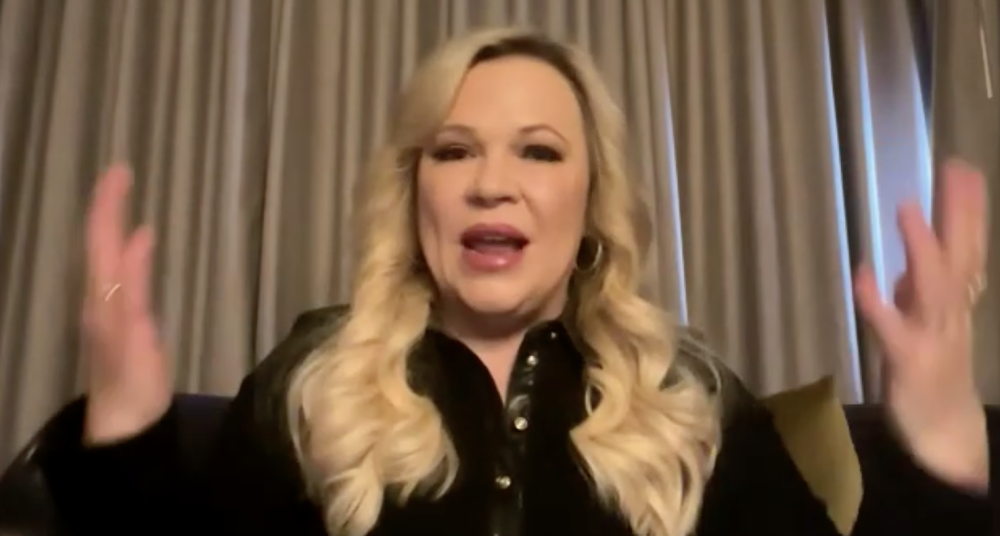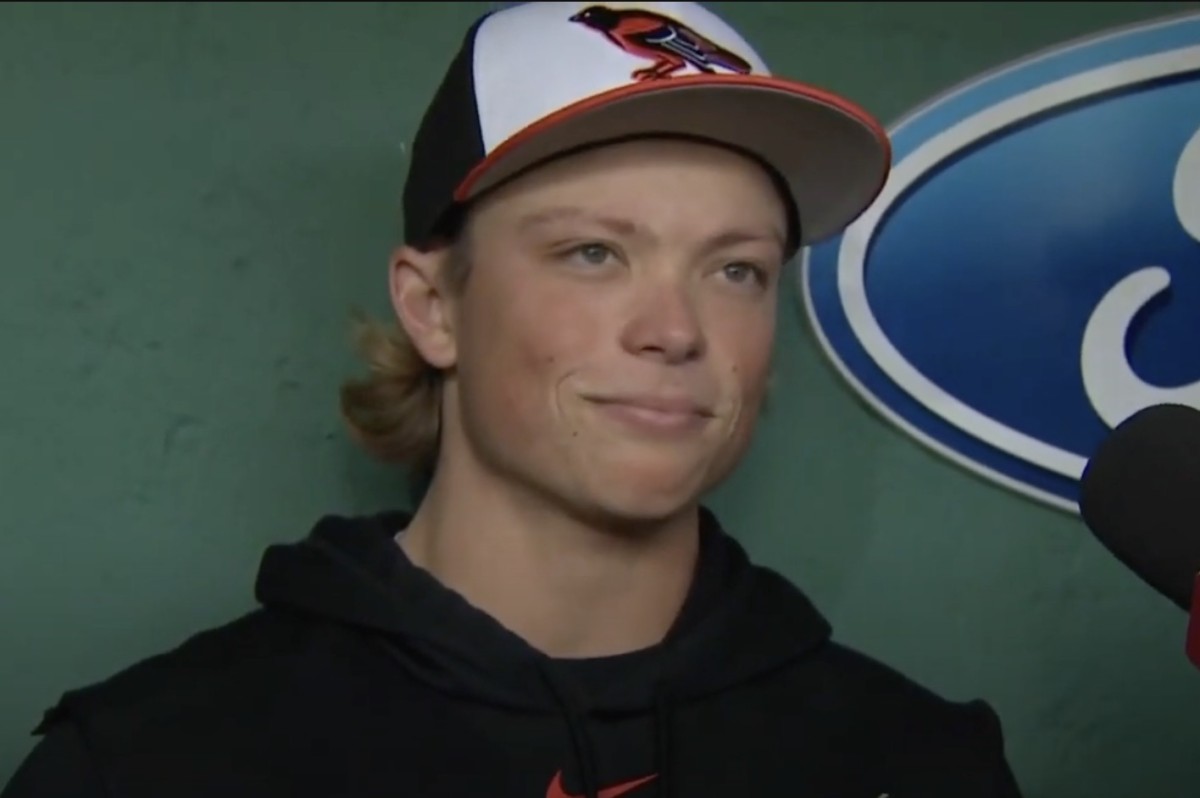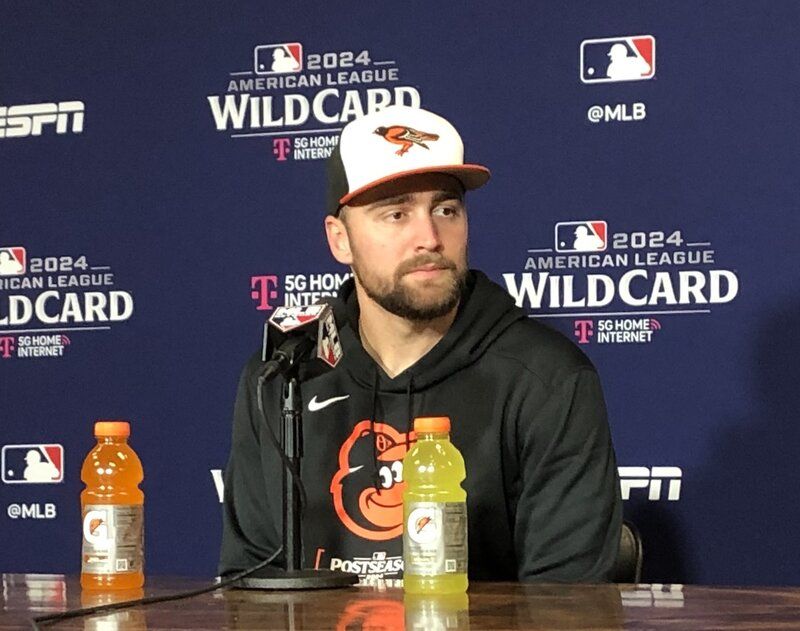A Tyrant Is Born
“Our fan support is beyond words. If we had enough seats, we’d surpass every other club. Our expenditures were long overdue in light of the fan support and rather meager compared to the expenditures of other clubs over the years. We felt we had some catching up to do, that the previous ownership had not done all it could to repay the fans, to give them what they deserve. We’re going to operate major league baseball in Maryland in a different way. We’re committed to making the club as competitive as possible, and that’s what we’re doing.”
— Peter G. Angelos, as told to Ross Newhan of The Los Angeles Times, March 27, 1994
IN THE SPRING OF 1994, on the eve of a work stoppage that would cancel the World Series for the first time in the history of Major League Baseball, a book was published that became a handbook for anyone who wanted to see behind the greasy curtains of the business of baseball. This “tell all” for those who could think beyond what was on the back of a bubble gum card wasn’t penned by legendary Major League Baseball Players’ Association head Marvin Miller, but it certainly came from the somewhat sympathetic perspective of the plight of the players vs. the owners in the annals of the sport’s history in America.
The only problem with any “bias” in it was rooted, much like this Peter Principles series, in nothing but facts. Cold hard facts – all well sourced – that reflect the reality of the business of baseball. It told of the institution of institutionalized racism, classism, elitism, intimidation, coercion and lies amongst a world of wealthy all-white males doing business with an anti-trust exemption in the 21st century.
The 1994 book is called Lords Of The Realm and if you take no other advice from this manifesto about the Baltimore Orioles history under Peter Angelos, pick it up and give it a read. It’s impossible to sum up 75 years of baseball history in a few sentences here but to discuss the history and business of Major League Baseball over the last century would require a bar of soap, some disinfectant, warm water and a towel. Drugs, scandals, cheats, louses, greedy and/or crazy owners, racism, violence, civic shakedowns, and lack of government oversight have plagued baseball through the years. But the marketing machines insist on red, white and blue, the American flag, “God Bless America,” hot dogs and virtuous intentions for your children to idolize from crib to grave. Go watch the Ken Burns PBS series, Baseball, and you’ll see that there’s nothing more important in the universe than the sanctity of baseball history, records, heroes and civic connection to Americana.
According to some people, anyway.
Baseball owners have tried to control their public message for a hundred years and then journalists have come forward to expose all of the dirty laundry of the sport over the century.
By any measure of history, Peter G. Angelos fits right into the old boys club of Major League Baseball owners. Now, more than 20 years into his residency, it’s easy to measure his role in the pantheon of tyrannical, egotistical and iconoclastic baseball owners right up against George Steinbrenner, Charlie Finley, Bill Veeck, Auggie Busch or any of the other “Lords” as John Helyar put it in his book 20 years ago this month.
Peter Angelos bought the best and most valuable franchise in Major League Baseball in August 1993. It was the most expensive franchise in North America. Previous Orioles owner Eli Jacobs had hosted the Queen of England and the President of The United States in his shoddy, mezzanine hut on 33rd Street at Memorial Stadium and he had only controlled the team for less than four years. Owning a Major League Baseball allowed him the opportunity to sit with not only the rich but also the famous, infamous and influential. Angelos was a blue-collar attorney from East Baltimore who hit the legal lottery with an asbestos case that made him wealthy almost overnight. So, if his background portended a man who wanted to not only be rich but also desired to be famous and highly influential in the political space, then Angelos got his eternal wish with the purchase of the Baltimore Orioles.
In 1993, no one had ever heard of Peter Angelos outside of East Baltimore. By early 1994, he made sure that everyone who had ever heard of the Baltimore Orioles had heard his name and saw his image.
It started the day that he bought the team and returned to Baltimore a reigning hero and clearly in charge of the new Orioles ownership group. There were more questions than answers that day with so many prominent names involved and such civic interest in every facet of Angelos’ intentions. Angelos only won one election but this was akin to him giving a victory speech and outlining his platform for the future of the pride and joy of Baltimore – its baseball team.
“I’ll have ultimate authority in all matters, from the smallest things to the major things,” said Angelos, who said his title would be managing partner of the Orioles. “But I don’t brandish that as some kind of club, and I would hope it would never have to be used. I don’t think it will be.”
On August 4, 1993, The Sun reported this:
The baseball side of the Orioles isn’t likely to change dramatically with Mr. Angelos in charge. He said he generally supports the team’s current plan of grooming young players, rather than resorting to signing more expensive free-agent players. And he said that his goal as owner would be to give the fans a competitive team that occasionally brings home the biggest prize.
Winning a World Series “should be the goal for every team,” he said. “But that is not the sole consideration. If one can keep a team in contention throughout the season, one has given the fans what they deserve,” Mr. Angelos said.
He said he hoped to remove himself from the day-to-day affairs of the team, leaving them to several of his partners and to the team’s current front-office staff.
Angelos quickly moved to introduce the new management team for the Orioles. Bill DeWitt Jr., who chose to forgo the final bidding at the auction and instead join Team Angelos the previous day, was named the future Orioles vice chairman for baseball and current C.E.O. & president Larry Lucchino would be named vice chairman of operations.
The Sun said Lucchino “apparently would continue making operating decisions about the team.” Lucchino also was told he would be invited to buy a stock interest back in the team after selling his 9% to Team Angelos in the Jacobs liquidation.
The Team Angelos partner with the second-biggest stake in ownership was local author Tom Clancy, who Angelos told the audience would be overseeing Orioles public affairs and special events.
Angelos said all of the right things and preached patience and his full effort to building a winner for Baltimore, something the fans hadn’t seen since the 1983 World Series, which was the Orioles’ last postseason berth. Angelos understood he would be held under the microscope and wanted to be a good steward of the franchise.
“But if you are a fan and in a position of being the team managing partner, that is when you have to exercise restraint and judgment and remember the opinions you have as a fan don’t always apply,” Angelos said.
“I am a good listener,” he bragged. “I like to get input from the professionals. In the beginning, I am sure it will be necessary for me to devote substantial time to the Orioles. But as I become more attuned to the operation of a major-league franchise, that amount of time may be reduced.”
When asked if there were enough hours in the day to be a great baseball owner and a great lawyer, Angelos said: “I think I can handle both.”
There were salutations all over Baltimore as the team came back to local ownership with a litany of huge names and stars and an owner who pledged his money into buying the Orioles under the mantra that he loved his hometown and that his hometown deserved a championship.
“He’ll [Angelos] put a ballclub on the field, spend money and make us proud,” then-Governor William Donald Schaefer said. “Peter is a winner. He didn’t buy the team to lose. I don’t think he’ll be afraid to spend money. If there is one guy he needs to get over the top, he’ll get him. He’s not a shrinking violet.”
Local sportswear mogul Leonard “Boogie” Weinglass, who was pledged to buy a small stake as a part of Team Angelos, was effusive in the newspaper: “I’m delighted to have him in charge. Peter’s the man!”
Beyond the questions about the people involved, Angelos once again shared his thoughts about the Orioles and “thinking local.”
At his press conference, Angelos said: “It seemed to me incongruous that a city as thriving as Baltimore and a state as wonderful as Maryland always required help from out of town with our ballclub. I made it very clear that control of the ballclub will be in Baltimore completely.”
“There is going to be no sharing of authority in the running of the ballclub with anybody from outside the state,” Angelos said. “I told Mr. DeWitt quite candidly that there was no way that ownership of the club was going outside the state. It was not going to Cincinnati. It was not going to New York. I think there came a point where he realized that.”
DeWitt told The Sun he accepted a non-controlling interest because of his desire to have a more hands-on role win the operation of a baseball franchise. “I’m a limited partner with the Rangers and don’t have any active involvement in the operation of the team,” DeWitt said. “Here, I would represent the ownership group with respect to those kinds of decisions. The day-to-day operation of the club will be like it is now, but I would expect to advise the ownership on major transactions like trades and signings.























